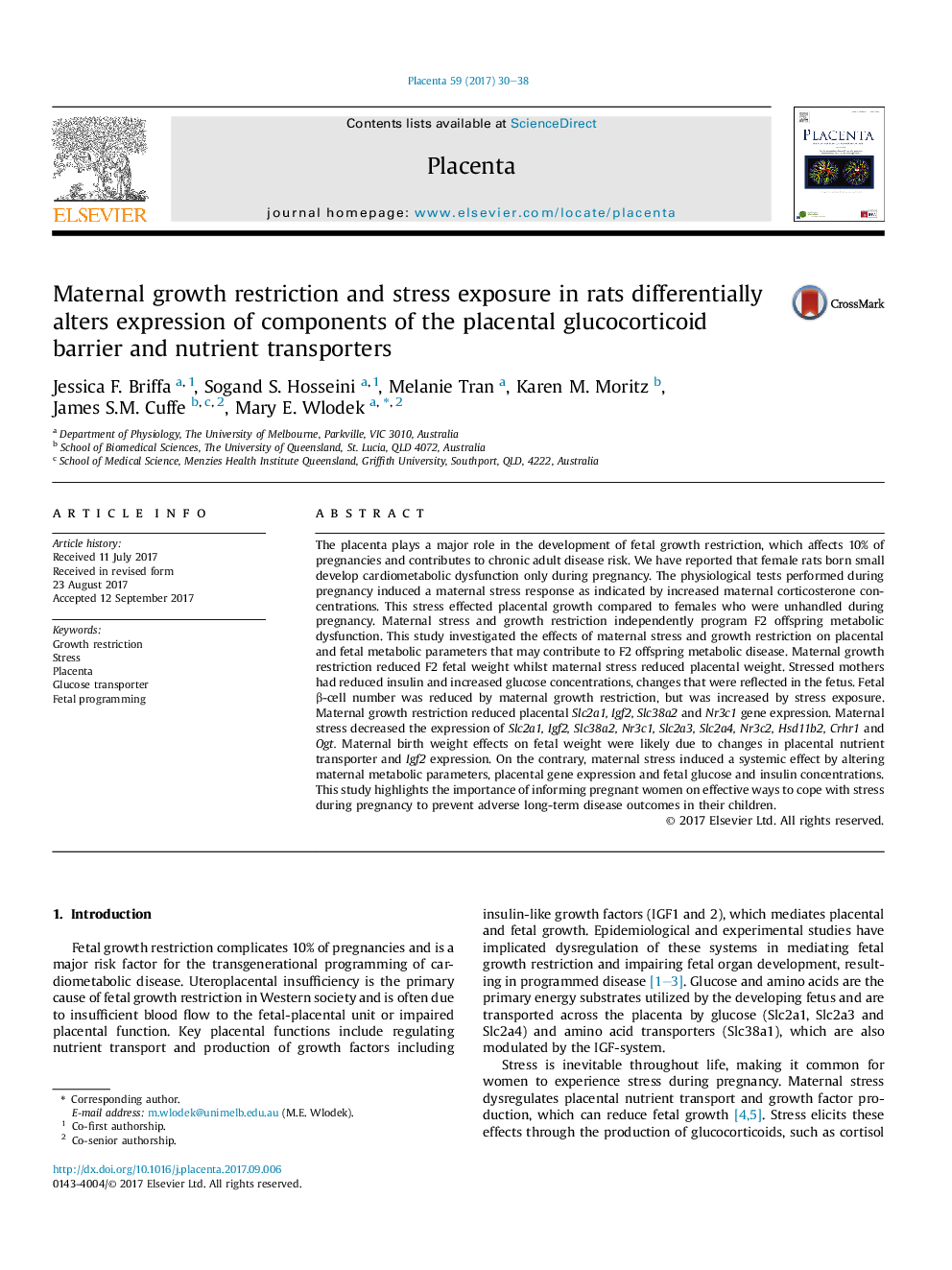| Article ID | Journal | Published Year | Pages | File Type |
|---|---|---|---|---|
| 5585985 | Placenta | 2017 | 9 Pages |
Abstract
The placenta plays a major role in the development of fetal growth restriction, which affects 10% of pregnancies and contributes to chronic adult disease risk. We have reported that female rats born small develop cardiometabolic dysfunction only during pregnancy. The physiological tests performed during pregnancy induced a maternal stress response as indicated by increased maternal corticosterone concentrations. This stress effected placental growth compared to females who were unhandled during pregnancy. Maternal stress and growth restriction independently program F2 offspring metabolic dysfunction. This study investigated the effects of maternal stress and growth restriction on placental and fetal metabolic parameters that may contribute to F2 offspring metabolic disease. Maternal growth restriction reduced F2 fetal weight whilst maternal stress reduced placental weight. Stressed mothers had reduced insulin and increased glucose concentrations, changes that were reflected in the fetus. Fetal β-cell number was reduced by maternal growth restriction, but was increased by stress exposure. Maternal growth restriction reduced placental Slc2a1, Igf2, Slc38a2 and Nr3c1 gene expression. Maternal stress decreased the expression of Slc2a1, Igf2, Slc38a2, Nr3c1, Slc2a3, Slc2a4, Nr3c2, Hsd11b2, Crhr1 and Ogt. Maternal birth weight effects on fetal weight were likely due to changes in placental nutrient transporter and Igf2 expression. On the contrary, maternal stress induced a systemic effect by altering maternal metabolic parameters, placental gene expression and fetal glucose and insulin concentrations. This study highlights the importance of informing pregnant women on effective ways to cope with stress during pregnancy to prevent adverse long-term disease outcomes in their children.
Related Topics
Life Sciences
Biochemistry, Genetics and Molecular Biology
Developmental Biology
Authors
Jessica F. Briffa, Sogand S. Hosseini, Melanie Tran, Karen M. Moritz, James S.M. Cuffe, Mary E. Wlodek,
